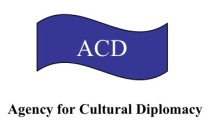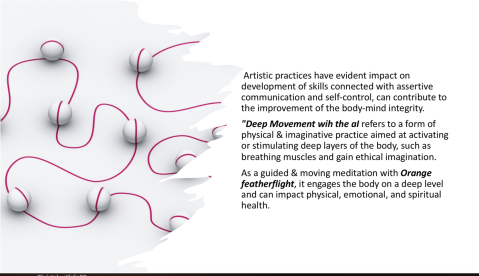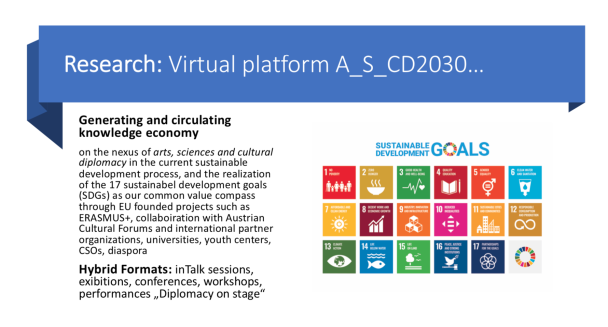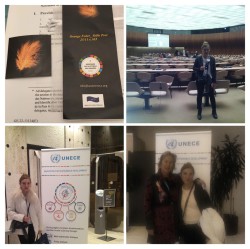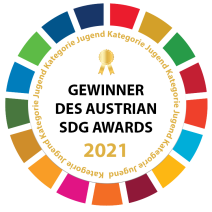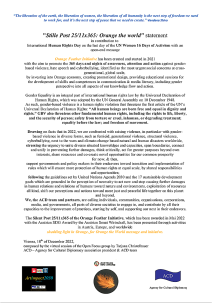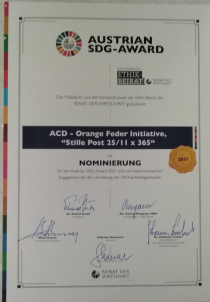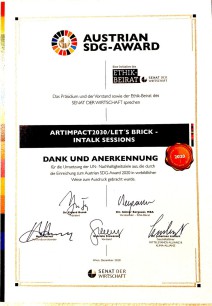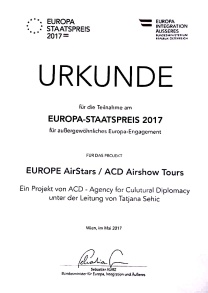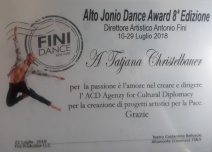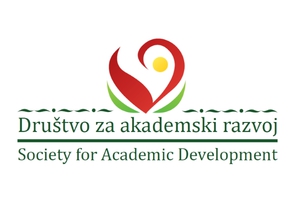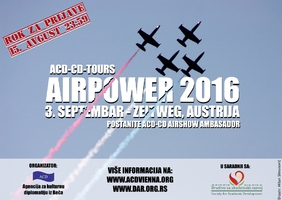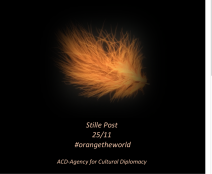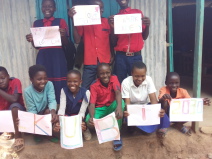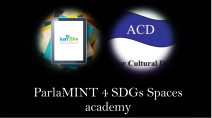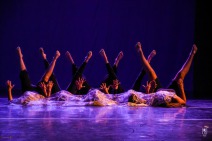
Cultural Diplomacy4 Science Diplomacy 2030 ... Policy Communication
Orange economy, cultural innovation policy 2030
all-day conference within the frame of the UNESCO MONDIACULT world conference on cultural policies and sustainable development 2022
Arts_Sciences
CulturalDiplomacy4Science Diplomacy Polica 2030 ...Communication
The platform for transboundary
academic collaboration,
citizen science project engagement,
eco-system of knowledges and practices,
circular economy drivers in innovation policies and transformation in the sustainable development processes
conducting policies, actors, and networks
4SDGs, for people, planet, prosperity, partnerships4peace
arts_based methodology.
feminist approach
to foreign policy and economy
engaging
with the civil society sector,
diaspora communities, business corporations, EU-driven organizations and platforms, local Austrian, and international governmental and non-governmental institutions and organizations,
engaging barrier-free with blind & visually impaired
while
reaffirming and acknowledging
that international scientific cooperation is essential for mutual prosperity
Now is the time for the world community to boost international scientific cooperation, and in response to current major challenges, inter alia, climate change, the global pandemic, and armed conflict, not to withdraw from such informal diplomacy, but to strengthen it; Believing that this objective can best be achieved through international co-operation based on the universal values of science and bridge-building across a broad group of relevant stakeholders;"
Creation of the platform A4S4CD2030
by ACD president was inspired and supported by s4d4c EU-Horizon2020 project course and leading team and its further developed EU Science Diplomacy Alliance InSciDe through the opportunity to present this ambitious endeavor on the panel at the s4d4c final network meeting conference and the flash presentation at the InSciDe
open conference Erlangen in 2021,
envisioning further collaboration by engaging in, and hosting the space for interactive transboundary engagements
Guiding insights
In the current global sustainable development process,
political decision-makers are confronted with challenges that are streaming beyond diplomatic salons. Emerging issues, such as the effects of the C-19 pandemic on the global economy, international relations, and above all, on all people and the planet, cannot be solved without transboundary collaboration and cross-sectoral, international partnerships.
The United Nations Sustainable Development Agenda 2030 and the 17 Sustainable Development Goals (SDGs) have been adopted as a meta-framework into policies of the European Union, ranging from the set of policies titled European Green Deal and the initiative The New European Bauhaus- a creative and interdisciplinary initiative that connects the European Green Deal into living spaces and experiences, en-compassing SDGs into the framework of the European platforms, such as the European platform for cultural relations European Union National Institutes of Cultures EUNIC, Horizon Europe research platform, Creative Europe Cultural Desks, a.o. EU partnerships with international organizations such as the OSCE and the UN Women in tackling emerging security issues and raising gender-based violence are showing the commitment to and the response-able acts at the EU level to promote the 17 SDGs-oriented policy and its implementation within all sectors and landscapes.
The notion of ´two cultures´ related to knowledges deriving from two academic disciplines (arts & science) has been found in C.P Snow’s published lecture The Two Cultures and the Scientific Revolution (1959) and applied to support this view, by conducting the third culture and space for action into communication and thus, enhancing the knowledge-to-action cycle.
As an Austrian-Vienna-based association, the ACD-Agency for Cultural Diplomacy team develops its activities by orienting on Austrian national policy documents and good practices and conducting within the global landscape with SDG-compass.
All Austrian federal ministries were tasked with the coherent implementation of the 2030 Agenda by a decision
of the Council of Ministers in 2016.
The Diplomatic Academy of Vienna is also a partner of the Horizon 2020 project »S4D4C – using science for/in diplomacy to address global challenges«. In the framework of this project, the Diplomatic Academy is part of a consortium of 10 universities and research institutions developing, amongst others, training concepts and the communication of knowledge in science diplomacy.
Austrian University network UniNEtZ
“Allianz Nachhaltige Universitäten” has developed a joint project under the title “UniNEtZ – Universitäten und Nachhaltige Entwicklungsziele”.
ACD-team collaborates with Austrian Cultural Forums (AKFs) and Austrian Libraries abroad, whose mission and role are directed toward building and maintaining meaningful cultural bridges to the world. SDGs-oriented contemporary art, sciences, and innovation are at the forefront of the priority agenda of the Austrian Cultural forums and Libraries abroad.
AKFs and libraries are thus decentrally organized priority centers for Austrian cultural work abroad (Austrian “embassies for culture”)
In 2018, the ACD-Agency for Cultural Diplomacy-president initiated and started the ArtImpact2030 - initiative in partnership with UNESCO Paris, UN Vienna, and the Kunst Haus Wien with the aim, to shed light on art-based activities and their contribution to the sustainable development process. Hence, the A_S_CD2030 platform will also be supportive of the impact evaluation of the ArtImpact2030-initiative, and projects started and introduced within.
Applying on thoughts of the French philosopher and scientist Bruno Latour, the platform A_S_CD2030 may contribute to the European, but also to the global endeavors toward maintaining the current and mitigating the future crisis, by co-habiting more carefully, being aware of surrounding damages, but also aware of the beauty of our planet and its generous patience as a host and the common lifeworlds which we are part of, keeping the SDG-compass in our pockets, minds, and hearts, our gender-glasses on, by keeping our shared history in memory, envisioning futures as response-able actors and communities:
Each, and many, as parts of diverse communities, we may vow and tie our synergies, resources, and capacities, as there is currently no other planet where we all can just shift and start over.
The political stage is more than ever open for actors from the fields of sciences and professionals from media, technology, culture, and art, whose activities are reaching out to broader actors and networks and can support the eco-social awareness-raising, engagement in respons-able maintenance of crisis, but also encourage solidarity by creating opportunities to engage in and to collaborate with, for now, and then.
Art as a method and tool for communication has ist long historical legacy and evidence, in particular, by enabling encounters, dialogues, and experiences of commonality. as deliberately expressed by American actress Meryl Strip and Chinese musician and composer Yo-Yo Ma in the musical dialogue at the UN-China Forum in 2011.
Cultural conflicts and debates on values of cultural, natural, and other resources have been arising, in particular, due to uncontrolled technological developments. (Wissenschaftskonzept Österreich)
Following the various media channels and reports, due to the outbreak of the C-19 Pandemic, it has been observed by individuals as well as by official media that virtual space became the arena of diverse non-state actors engaged in the promotion of cultures and values, not always human-nature-friendly and science-facts and evidence-based, which have led to rising distrust among the wider population, science, and politics worldwide, and the populations are still divided into those who are vaccinated against Covid and those who are not. Despite such polarizations and current societal challenges such as the war in Ukraine, people in Europe and worldwide are showing solidarity and their commitment to peace and democratic values, standing together against war and destruction.
How can diplomacy 21st century make a better impact on conflict resolution and prevent wars?
Diplomatic negotiations among state leaders are still crucial at the end of the day, but following the current worldwide news, science diplomats and civil society are delivering significant examples and messages for peace and collaboration.
Conducting cultures of knowledge and practices deriving from arts, sciences, and diplomacy, through interactive engagement at a cross-sectoral scale, trust-building among civilians and state actors will increase, shared opportunities will raise shared responseabilities and thus, the commitment to common prosperity, of people and planet. The "fight" for resources may change its dynamics, in recognition of limitations and damages caused by the previous and current use; the fight for a dominating role may transform into a generative dance for common prosperity.
The virtual space can also become an arena for encounters that encourage, inspire, and support each and many. Such opportunities have been taken by artists and art communities worldwide to provide and also to promote the artistic practice as a form of self-and community mental health care.
According to the UNESCO Institute for Statistics, 30% of scholars globally, are educated outside of the public school system. The nonformal and informal education sector, art, and cultural communities have emerged as an innovative landscape for collaboration and support in continuing learning at the cross-generational level.
Such an attempt has been made during the outbreak of the coronavirus pandemic in 2020 by ACD president, together with partner organization ADEPS in Maragoli Kenya, in support of scholars, their families, and teachers, by providing free-of-charge art-based learning activities on Skype and Zoom sessions: Ikubi2030-children radio .
Furthermore, a project with the ACD-dance arts team was started as an FB-group project for exchange among 5 women in arts about their daily practice and healthcare, in the first month of the coronavirus outbreak. The collection of artworks and activities has been conducted into the composition of artworks and workshops art&health: ACD-Zalike2020- the project team.
The need for academic collaborations among art &science students and professional practitioners with science diplomats and students in diplomacy with local governmental and non-governmental institutions, and European and international organizations, is also given in the fact that art is at the forefront of European Cultural diplomacy, together with science and technology.
Conducting arts, with science and diplomacy students and professionals, the field of inquiry and communication will flourish in a triangle: arts_sciences_diplomacy and accelerate the knowledge-to-action-cycle.
^ The conceptual model called the Knowledge-to-Action Cycle was developed by Graham and colleagues in 2006. Source:
Graham ID, Logan J, Harrison MB, Straus SE, Tetroe J, Caswell W, et al. Lost in knowledge translation: time for a map? J Contin Ed Health Prof. 2006; 26(1):13-24. doi: 10.1002/chp.47
Art-based methodology in/4 science diplomacy policy communication,
will enhance the multilingual and multiple access to informations, increase the engagement of and collaboration with citizens, in particular members and leaders of cultural and diaspora communities, as the CSOs are playing a multifold role in the European (and globally) social integration of diverse communities, are actively involved in cultural diplomacy activities and are engaged in intercultural communication mainly through art-based forms of expression.
CSOs
are also often perceived as pro-peace, which tends to overlook the fact that some CSOs have strong affiliations with conflict parties and are, therefore, often part of the problem rather than the solution,
as outlined by the OSCE Secretary General Thomas Greninger, in his interview on the role of CSO in mediation processes through the eyes of the OSC. Furthermore, secretary-general T. Geiniger points out that "civil society organizations can provide early warning on rising tensions, facilitate dialogue to resolve disputes at the earliest possible stages, contribute to reconciliation processes through grassroots engagement, and strengthen peaceful and tolerant societies.
The CSOs also play a critical role in ensuring the meaningful inclusion of women in preventing and resolving conflicts as well as in longer-term peacebuilding efforts.
CSOs provide important platforms that help empower women and make their voices heard.
CSOs can help foster the legitimacy of such processes, promote trust between communities on different sides of the conflict divide, and broaden participation by ensuring that the issues affecting different segments of society are fed into the negotiations—thus rendering the eventual implementation of agreed solutions more comprehensive and more durable.
Recognizing the necessity to reach out to CSOs and diaspora communities, but also experiencing their engagement in and interests in the practice of cultural diplomacy, A_S_CD2030 ... ... transboundary dialogue platform will encourage the development of tailored courses on SDG-oriented CD, and connected with the European Science Diplomacy policy communication.
In this regard, the collaboration with CSOs, by engaging in SDG-oriented citizen science projects and CD2030 ... -courses, will contribute to the local governments, communities, EU, and global cultural diplomacy through a current paradigm shift from the competitive promotion of national cultures and traditions, toward UN SDG-oriented cooperations for mutual prosperity, the shift from soft power-persuasive approach toward response-able engagement in urgent, vulnerable nexus, #stayinginlove with the world within as it is the base where diverse views, perspectives, experiences, can be tied in complementarity, for life now and then,
without causing and/or leaving damages behind, but the #blueprint, #orangeprint, #greenprint, .. seeds and grounds for us, for the next and the next.
United in diversity
EU perspective
Linguistic and cultural diversity may occur as one of the corner challenges by trust-building in political decisions and scientific informations related to the pandemic, climate change, gender-related issues, as well as policy implementations in our daily life, by individuals and communities, corporations, institutions, and nations.
At the Council of Europe’s initiative, the European Day of Languages has been celebrated every year since 2001 on 26 September - together with the European Commission.
Herefore, A_S_CD2030 ... platform will encourage and promote linguistic pluralism applying concepts and theories of translation deriving from science and technology studies such as the Actors-networks theory -ANT-theory developed by French sociologists Bruno Latour and Michel Callon Callon ANT-Theory),
practicing feminist speaking and translating learned from feminist scientists Dona Haraway, G. C. Spivak, Hito Styerl, a.o ) keeping diverse contexts and situated knowledges in mind, learning from concepts such as the ecology of translation
(W. Schlesinger 2010), including assistive technologies and EU-AI ethical guide into educational practices.
The EU- language policy is based on respect for linguistic diversity in all Member states and on the creation of an intercultural dialogue throughout the EU. Conducting technologies from linguistic programmers to aviation communication with radio and new media technologies, connecting devices, actors, and networks will result in multiple nourishing and enable innovations and improvement by all engaged actors, sectors, and beyond, across European regions and countries and worldwide.
ACD-team presents its initial projects to inspire and to guide, as a host but also in the role of boundary spanner and art-based research methods creators, developers, and providers 4 all interested in engaging in, applying on, and supporting this ambitious endeavor.
Project series Let´s Brick! and SprachenWeb2030 created and developed by the ACD president with Austrian and international partners can demonstrate examples of the creation of linguistic landscapes by use of AI and assistive technologies.
Diplomatic negotiations and policy implementations in daily life may have a better impact by increased collaboration with professionals from art and with cultural communities, to reinforce communication with the national and international general public. Art in dialogue with sciences and diplomacy can shift diverse boundaries related to languages, cultures, and political views, and open diverse arenas for interaction and multilingual expression.
There are currently worldwide many Arts&Science academic programs, but not connected to science diplomacy communication and policy development/implementation.
The soft power- the potential of artistic expression can attract and raise sympathy, but even more, when oriented toward social and environmental challenges, it may raise critical and controversial dialogues, widen perspectives, and also influence political decisions, by providing fact-based evidence in a variety of expressions, epistemic cultures, and practices, complementary in their engagement for the improvement of the leaving and working conditions, health, and wellbeing, barrier-free opportunities to engage, multivoiced, and multilingual.
Hence, applying insights from the “New Science Diplomacy Protocol” drafted and published by s4d4c- Horizon2020 project team, the platform A4S4CD_2030 approaches ´cosmopolitan view and methodology´ as coined by sociologist Ulrich Beck, by bonding arts-science-diplomacy-based epistemic cultures and practices by actors willing to collaborate on addressing societal challenges instead of competing
for knowledge and resources for national gain´.
in: https://www.s4d4c.eu/introduction/introduction/
In this regard, ACD- Agency for Cultural Diplomacy invites students, alumni, and practitioners from the fields of arts, sciences, diplomacy, media technologies, and politics, diaspora communities, and individuals to engage in, build alliances, and conduct synergy in their endeavors, support science diplomacy sustainability policy communication and its implementation in Austria, Europe, and worldwide, as the 17 UN SDGs the UN Agenda2030 encompasses all fields and aspects of life, work, learning, relations, and relationships, its ethical, economical and social pillars.
The platform A4S4CD-2030 opens up opportunities for the establishment of long-term collaboration of multiple stakeholders that can ensure (more) successful science diplomacy sustainability policy responses in times of global challenges.
The activities are aimed also at contributing to the S4D4C-2030-project and online course by transboundary conducting and bonding epistemic cultures and practices deriving from arts and applied to science diplomacy sustainability policy communication, and to encouraging the SDG-oriented cultural diplomacy in the practice of civil society with diaspora communities, by creating modules for tailored academic courses on SDGs-oriented CD UN SDGs and the EU-sustainability policy in local languages and with local communities,
Arts-Sciences_CD2030 - research and presentations of findings will nourish the ecosystem and the transboundary life cycle of the novel situated knowledges and practices for science diplomacy policy communication and its translation into CD-SDG-oriented practices of diverse actors.
Hybrid formats: virtual inTalk Sessions-and in-house Residences with Focus groups, multimedia art_sacience_diplomacy in practice presentations, ArtBooks, podcasts, radio plays, choreographies and installations, dances and songs, stories, and visions will be introduced, shared, applied on, re-created, translated, summarized into policy recommendations, by open-end inTalks, performance lectures, and gatherings hosted by
ACD-Diplomacy on Stage- actors, and networks.
Academic Sessions, citizen science projects, workshops, presentations, inTalks, and conferences are organized in collaboration with partner Universities, Research Institutes, governmental and nongovernmental Institutions, and Organisations Cultural and Diaspora Communities, European Union offices, International Organizations, business corporations, media, other stakeholders, interested in to engage, support, connect.
Art_Science_Diplomacy2030 .. collaborations include theoretical insights as well as practical tools, co-created by engaged actors, applying their diverse experiences, epistemologies, and communication as a resource for the development of the novel situated and co-generated knowledges and practices within the eco-system A_S_CD2030
The specific objectives
of projects and activities started within all ACD platforms
are following:
to span boundaries, host and engage diverse actors and networks, which will co-create, conduct, translate present, and provide scores and tools, which can be applied in the European and global Science Diplomacy Sustainability policy communication and its implementation at all levels of societies;
to connect education & engaging working opportunities through cross-sectoral collaboration;
to enhance the inclusion of gender perspective within all stages of education and practice:
contribute with relevant insights and policy recommendations to cultural democracy development;
to initiate and support collaboration among CSOs, diaspora communities, art, and cultural institutions, with scientists and diplomats in Austria, Europe, and internationally,
to increase the focus on programs and partnerships for Sustainable Development and 17 UN Sustainable Development Goals (UN SDGs) as a common framework for engagement in research, practice, and its communication, in particular, the linguistic diversity-sensitive translation of policy into acts of life, by individuals, and communities;
to create a joint effort among students, practitioners, and community leaders from the fields of arts, sciences, and diplomacy; to create a certified academic program for cultural diplomats and science diplomats,
boundary spanners with career opportunities,
while STEAMing together and upgrading conditions, abilities, skills, and opportunities, for now, and then ...
Art-based methods
and CD_2030-conceptual framework
within all sectors
Targeting issues:
Societal and environmental challenges such as rising gender-based violence (in particular femicide), depression by 16% of young people in Austria, climate crisis;
Global, European, and regional (Austrian) approaches to
SDG 16.10, 17.17: Ensure public access to information and protect fundamental freedoms by
encouraging, developing, and promoting effective partnerships through education for sustainable development and global citizenship SDG 4.7, SDG 4.3, SDG 5.5: Foster tertiary educational qualifications and proportion of women in managerial roles
Health and well-being issues, such as rising depression and domestic violence, accelerated due to the effects of the C-19 Pandemic and restrictions in social life connected with C-crisis management-related measures and rules worldwide, including the
art4health - component within all A_S_CD2030 ... activities.
By conducting art-based holistic methods and professionals with practitioners in health care settings and medicine across sectors, ranging from sports medicine to ergonomics and medicine in aviation health care, the exchange of good practices, technologies, and scientific findings will be mutually nourished, and perspectives and opportunities widened.
The spot-on sustainable health care and somatic approaches to well-being at the level of people and nature are included in the ecological pillar of the A_S_CD2030 ... platform and its activities, art-based research, and practices are also aimed to contribute to its evidence for health policy improvement.
Areas of Impact
Multifold impact:
social: SDG 4 cross-sectoral, cross-generational opportunities to engage in, academic collaborations, citizen science projects, conducting formal+informal, virtual-open_out- door education, improving learning opportunities and environmental conditions quality
economic: SDG8+10+17.17 conducting formal+informal education&opportunities, Orange Economy; SDG bond
cultural: SDG 4+ 11+ + 13.3+ 17.17 greening with orange, gender approach in mitigating and preventing conflicts and gender-based violence #orangefeather; encouraging and supporting the Cultural diplomacy 2030 ... paradigm shift in the promotion of values and trends toward #greeningwithin, finding complementary unity in diversity of expressional forms, traditions, epistemologies, views, within one common world
political: SDG 16_SDG SDG 4.7+17.17 supporting the European and global Science_Diplomacy Sustainability Policy development, communication, and its translation into practices by engagement of diaspora communities into citizen science projects, thus supporting the European social integrations and peace by trust-building through shared opportunities and response-abilities
health&wellbeing: SDG3 _SDG 4+SDG 17.17
Conducting art-based holistic practices in health care settings, supporting the local, national, and international endeavors toward
Ensuring healthy living and promoting well-being for all people of all ages
Bonding the European and global research area by spanning boundaries among epistemic cultures, initiating and hosting international transcultural trans-disciplinary and cross-.generational collaboration in scientific research in practice, conducting the arts, social sciences, political sciences, and humanities with new media, information technologies, and natural sciences;
Enhancing European social integration, by encouraging linguistic hospitality, bonding formal- informal education; in a wider spectrum, impact on safety, health&weellbeing (resilience program), trust-building among diverse communities (cooperations with CSOs, diaspora communities);
All engaged would benefit from collaboration in cross-cutting issues, such as gaining a deeper understanding of diverse cultures attached within diverse but also common epistemologies deriving from arts, sciences, and diplomacy;
developed and improved their abilities in diversity-sensitive translation, the practice of linguistic hospitality, and technologies in linguistics (such as ELE, language programming); shaped Art Scientists, Science Diplomats, and Boundary Spanners- profiles co-create career opportunities across sectors and disciplines, strengthened their role and competences as engaged actors in and contributors to the European and global Science Diplomacy Policy communication and its implementation in the life practice of one and many, for now, and then ..
A4S4CD_2030-Rationale
The framework for the platform A4S4CD2030 has been created by ACD-president Tatjana Christelbauer after completing the comprehensive online course S4D4C on Science Diplomacy in July 2020, to contribute to the S4D4C-Horizon project by promoting Science Diplomacy for the realization of the Sustainable development Goals (UN SDGs) and to advocate for the art-based tools and human sciences for the development of transversal skills and tools of students, practitioners, promoters, and negotiators for successful scientific communication; to promote and to provide experiential and creative learning methods and activities for teaching skills that are essential to reach effective, science-informed evident responses to today’s global challenges; to support the regional, European and global social integration through a framework which connects people and values across all borders Agenda2030 in cooperation with diaspora communities and CSOs; to support the European Model for Skill Development
(Pact for Skills) and to connect education with opportunities through cross-sectoral partnerships.
* Read more about Science Diplomacy stakeholders here:
Ana Elorza, Lorenzo Melchor, and Izaskun Lacunza. 2020. Who Are the Science Diplomacy Stakeholders?. In: S4D4C European Science Diplomacy Online Course, Module 3, Vienna: S4D4C.
* The Madrid Declaration on Science Diplomacy
EXAMPLES
from ACD-projects
ArtImpact2030 ...
Current: art4orange Stille Post 25/11
Austrian external cultural relations:
Conference AKF Belgrade: Bodenwieser-Mandukic ... Art_Humanities_Diplomacy_Media
Arts_Humanities
The Art of Building Peace: exhibitions of the Cypriot-Turkish artists supporting the Green-Line regulation:
Art_Health
The most comprehensive report on the evidence-based impact of art practices on health and well-being with a focus on European countries has been synthesized in the World Health Organisation (WHO) report in 2019. One deliberate example of the evidence of music as a psychoactive stimulant can be seen in the example of the prima ballerina with Alzheimer, shared by the Spanish organization Música Para Despertar.
Art4Health owned by the WHOs Department of Reproductive Health and Research was launched in 2006 as an innovative advocacy project, using art to increase awareness and promote action to improve reproductive health, especially for women and children. The exhibition was hosted by the IAEA in Vienna in 2010.
C-19-response: The effects of the Corona-Virus are thematized. UNICEF provides an online exhibition
Dance arts, public health, gender:
Philippe Talavera, a French immigrant to Namibia with a background in biology and theater, found himself the director of the only full-time traveling dance company in Namibia. Talavera is the founder of Ombetja Yehinga Organisation (OYO), a nonprofit that uses arts, including dance, to raise awareness about important public health and gender-based issues.
Digital Cooperation and diplomacy:
Sustainable Energy use
Our globally interconnected world is currently realizing the environmental and social consequences of the current energy system. Radical changes in the European and global energy systems are needed. Social sciences may support effective changes in the energy systems as well as provide appropriate models for global communication and the promotion of scientific insights.
How can the engagement of professionals from art fields support the scientific and political endeavors toward sustainable energy use?
The technologies are highly developing to ensure the transformation toward society powered by sustainable energy.
Awareness-raising on potential and real dangers and damages caused to people and the planet by non-responsible use of energy, the introduction of alternative solutions, can be more effectively communicated when artistic forms are included, and the artists, are engaged.
Such an example can be seen in the artwork of Friendensreich Hundertwasser. In 1980 Hundertwasser donated his Anti-Atom poster "PLANT TREES - AVERT NUCLEAR PERIL” to Ralph Nader's Critical Mass Energy Project in Washington D.C. In the same year, Hundertwasser supported the Austrian initiative of opponents of nuclear power and the Austrian Anti-Atom-Referendum for the conversion of the Zwentendorf nuclear power plant into a caloric power plant and the tightening of the Atomic Energy Ban Act. The poster was used for various anti-nuclear campaigns in the following years, and the sales revenue was donated to the citizens' initiative.
The Awareness-raising actions of Hundertwasser have opened space for critical thinking and dialogue, with impact.
Another example from a Nobel-price awarded physician-scientist Mr. Abdul Salam who promoted peaceful nuclear energy use has been applied by the current scientific and political endeavors towards sustainable Nuclear Energy use.
The International Atomic Energy Agency IAEA implements and elaborates programs for supporting its Member States in conducting national energy studies to identify the potential role of various energy technologies, including nuclear power, in meeting their future energy needs.
A_S_CD2030... platform and activities, as well as the ACD-projects and initiatives are aimed to support and to contribute to the awareness-raising on renewable energies, safety, and environmental protection, in accordance with the Austrian official statements, but also in dialogue with critical and controversial theories and their representatives to argue in variety and open space for finding in complementarity by keeping eyes, minds, and hearts on SDG-value compass.
The development of transboundary collaborations will result in a higher impact on decision-makers and awareness-raising within the general public on responsible energy use (SDG7), and subsequently, such activities will support environment protection (SDG15) which results in better living conditions and better health and wellbeing (SDG3).
Preparatory activities on Arts4Sciences4CulturalDiplomacy-2030
with a focus on international business relations
inTalk webinar on 6th October 2020 in cooperation with MIB Trieste School of Management with Prof.Pilotto Stefano on "Geopolitical aspects on International Management" has opened space for further discussions on the role of energy use in the current political discourses.
Research and project development on Sustainable Energy use, focusing on the nuclear power plant, by ACD intern Ms. Sahar Ahadyar, a graduate student of the Political Sciences at the University of Vienna.
Up to 2021:
The public online event on 16th March 2021:
Announcement of the Platform Arts4Sciences4CulturalDiplomacy within the Final Network Meeting Conference of the S4D4C-Horizon Project Team;
A4S4CD2030-virtual residency
for students and professionals from arts, science, politics/diplomacy up to April 2021;
Thematic inTalk Sessions with focus groups
Sustainable Energy use in the current global discourses; Art&Science
SDG5, SDG10: Gender inView; femicid, gender-based violence art4orangetheworld
Visual Arts4Health: C-19
The Art of Presentation:
soft skills4science Diplomats
Safety&Security studies:
diaspora community and cultural associations, social integration, and health
KuBiPa-coops for decent work: A4S4CD2030- project- partnerships
Welcome to connect,
share your suggestions,
become an institutional partner, and apply for residency:
info@acdvienna.org
Reference: A4S4CD
ACD-projects and initiatives for art professionals and educators to connect:
Orange Feder_Stille Post 25/11 x365
ArtImpact2030-initiatives such as DanceArts* social sciences, KuBiPa2030, SpacesAcademy #planetarythinking F*Air, inTalk Sessions with focus groups on UNESCO Futures of Education- Let´s Brick! -2050, in partnership with UNESCO and international stakeholders from Academia and Civil Society;
